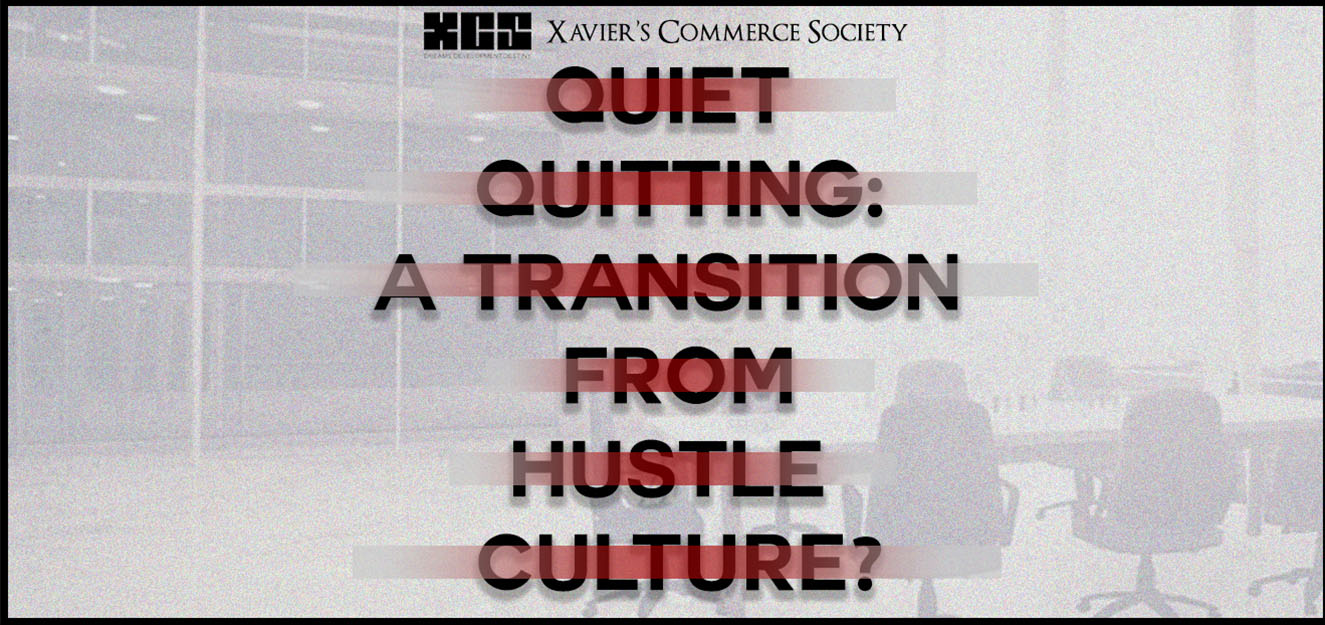


A Transition From Hustle Culture
The world may be experiencing a situation similar to the ‘Great Resignation’ period during which an estimated 71.6 million people left their job from April 2021 to April 2022, which comes to around 3.98 million people per month, according to the findings of the U.S. Bureau of Labour Statistics. ‘But what could be the reason for such a sudden and dramatic shortfall of employees?' This is mainly because many of the working class people have started to believe that the organisations they work for do not give them the respect they deserve and that their compensation is also not at par with the work they do. This thinking was also escalated because of the shift from the ‘Work from Home’ mode to the conventional office mode post the pandemic, as by that time, many of the employees were used to a type of work-life balance that they had never experienced before. As convenient as this may be for those to whom the option of quitting is available, this is not the case for all the employees unsatisfied with their job.
Those who cannot quit their jobs due to reasons such as financial constraints and responsibilities towards their family, have started choosing a different route to ensure that their work life balance would be somewhat similar to that what they had experienced during the pandemic period. This trending concept has come to be known as quiet quitting, where the employees do not actually quit their job, but do the bare minimum required of them in the organisation. This includes switching off their work phones and not responding to emails after working hours, demanding extra pay for work after their shift ends, separating their identity from their job, leaving the office right after the end of their shift, and setting up clear work-life boundaries.
Gallup’s State of the Global Workplace Report (GSGWR) states that 57% of the world’s employees are not engaged and thriving in their work, and this number gets significantly higher when younger generations are considered. So, who are the people taking the route of quiet quitting? Data from various studies suggests that there is a sharp contrast in this situation between the older and younger generations. While the older generations prefer a work mentality more aligned with the ‘Hustle Culture’, and believe in ‘Grind and Rise’, the younger generations are more concerned about their work-life balance and do not feel any obligation to work hard for their organisation.
According to GSGWR, quiet quitting has cost more than 7.8 million dollars in losses due to a decrease in productivity caused by inefficiency of the employees. Additionally, it has been noted that when some employees put off their work, others are forced to pick up the burden. This creates a toxic work environment that has a detrimental impact on productivity, even among employees who are devoted to their jobs and wish to contribute significantly to the organisation. Quiet quitting is also adding on to the concern of employees regarding job security, as many companies such as Google, Apple and Walmart are seeing a fall in their employee productivity, which has led people to believe that these companies may start laying off employees in order to compensate for the losses incurred.
Unlike common belief, quiet quitting may actually have a few advantages in the long run. Considering the current situation in which employees are resigning at a considerably rapid pace, organisations may prefer quiet quitting over complete resignation. Also, many Human Resource Management experts feel that in the long run, quiet quitting may actually help both the employees and the organisations as it could help develop a mutual understanding regarding personal boundaries between the employee and the employer, which could in turn help develop a positive work environment.
This is an alien territory for the companies as nothing like this has been experienced by them in the past. Moreover, considering the dynamic nature of employee behaviour, it has become extremely difficult for the companies to predict what may happen in the near future. Can companies come up with methods to resolve this ongoing predicament? Or, will this phenomenon continue to prevail, becoming a situation that everyone will have to learn to live with?